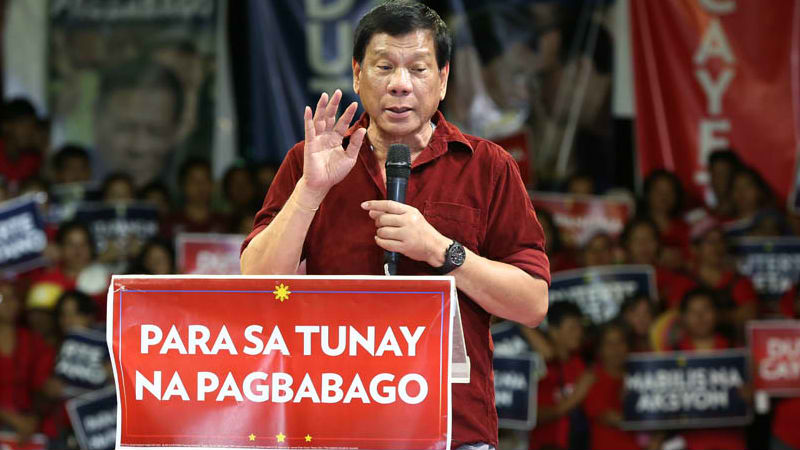The media and Mindanao
By Ed Lingao
Philippine Center for Investigative Journalism
MAINSTREAM MEDIA have oft portrayed them as belligerent, intransigent, even war-mongering. But when the negotiating panel of the Moro Islamic Liberation Front (MILF) faced the Manila media recently, Islamic scholars, historians, and academics confronted reporters.
MILF negotiating panel chairman Mohagher Iqbal broke the ice with an appeal to members of the media who had gathered that day for the dialogue in Quezon City.
“We are here,” he said, “to plead before you to support the peace process. If anyone here cannot support the peace process for various reasons, our single appeal is to please be very objective, not just by reporting with facts, but to please also get our side of the story so that it is balanced. There is a need for the MILF and the members of the media to level off about the peace process in Mindanao.”
The dialogue was the first of its kind for the MILF, a rebel group that has been grimly fighting for self-determination in the southern Philippines for more than three decades. It was also the first of its kind for the Manila media, long used to attending press conferences by politicians and bureaucrats. But several major news organizations were conspicuously absent at the dialogue, which had none of the hustle and bustle that accompany press briefings by politicians, movie stars, and shampoo product launches.
If the MILF panel was disappointed by the modest turnout, its members didn’t show it. In fact, they seemed more concerned in getting across their plea, which was apparently more than an appeal for goodwill. In the wake of the aborted Memorandum of Agreement on Ancestral Domain (MOA-AD) that had sparked another round of violence in Mindanao in 2008, the MILF has viewed the Manila media as one of its biggest challenges.
There had been a huge public outcry over allegations that the unpopular Arroyo government and the MILF had kept the MOA-AD secret from the majority Christian populace in Mindanao until the last minute, and the Supreme Court ended up ruling the deal as unconstitutional. That sparked a rampage among rebellious MILF commanders in central Mindanao, heightening tensions in the area.
“We are happy to be here because the media has become a problem,” said MILF senior negotiator Michael Mastura at the June dialogue. He said too many journalists and columnists were writing about Mindanao issues without learning first about the region, its history and its people. Too many journalists in Manila were writing about the peace talks while at the same time beating the drums of war.
The peace talks, Mastura said, were being painted, not in terms of a serious attempt to resolve the Bangsamoro issue, but in simplistic colors of black and white, in terms of secession or independence, of breaking up the country, or if imposing a Taliban-like rule over a Christian populace.
Iqbal said the MILF was reaching out to the other major players in the peace talks, those who do not have a seat in the negotiations, but wield enormous influence in the outcome: the media and the Catholic Church. The day before, the entire MILF panel had held its own dialogue with leaders of the Catholic Bishops Conference of the Philippines, where panel members assured the Church leadership that the proposed Moro substate would still be part of the Philippines, with full respect for human rights and freedom of religion.
“It is the policy of the MILF to reach out,” Iqbal said. “The issue of war, the issue of peace is the concern of everybody.”
To be sure, there were uncomfortable moments during the media dialogue with the MILF. The rebel negotiators were of course more used to dealing with their government counterparts than holding media briefings in Manila. One media organization representative later remarked that he was worried at one point that some reporters would walk out because of the tongue-lashing Mastura was giving the Manila press.
Mastura criticized the Manila media for failing to do their homework before attempting to write about something as serious as the peace talks in Mindanao. He even pointed out that most of the assembled media “had young faces” and may not yet have a grasp of the complexities of the peace talks. Some commentators, Mastura also said, agitate the populace all the more by reckless commentary based on wrong information. “In news and contents, the contents become comments,” he said.
What appeared to have kept everyone glued to their seats was the fact that Mastura, for all his stinging criticisms, had some very good points. At one point, Mastura asked reporters how many of them had even read the previous peace agreements. While the question was rhetorical, it still resulted in sheepish grins and an embarrassed silence.
“An agreement that will address the Bangsamoro core grievances will be a hard-sell to the national public even if it does not grant independence unless and until an effective communication strategy is formulated and implemented by both parties,” Mindanao Human Rights Action Center (MinHRAC) Executive Director Zainudin Malang also observed.
He added, “We are pinning our hopes on the media to play a big role in bridging this divide in conflict narratives so that both panels would find it easier to sell to the public – especially to the majority of Filipinos – whatever agreement they come up with.” — PCIJ, July 2012

